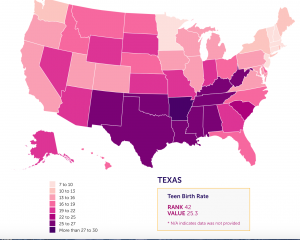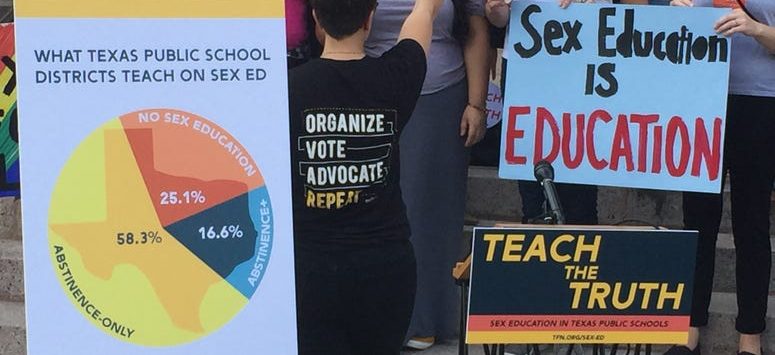The lack of comprehensive sex education in the U.S. is a major flaw of our education system and is a serious disservice to students, families, and communities alike. The U.S. is unique as a wealthy Global North nation that does not have a federal mandate for medically accurate and comprehensive sex ed (Daugherty, 2018, p. 82). Of the 34 states that require any sex ed at all, several require emphasis on abstinence and maintain an anti- LGBTQ curriculum (Daugherty, p. 83). Whether for cultural or religious reasons, state-required emphasis on abstinence can be detrimental to student health and well-being. Many elements of abstinence-only education are non-inclusive of diverse gender identities and sexualities, which adds to pre-existing stigma rather than working towards dissipating it. Compared to other Global North nations, the U.S. also has very high adolescent birthdates and rates of STI transmission. Within the U.S., these rates tend to be higher within conservative states.

Why Texas?
Texas has among the highest teen birthrates and STI transmission rates in the U.S., and is also one of the largest conservative states in the country. Across Texas there are a variety of sex ed approaches being used; abstinence-only and abstinence-plus curriculums are used as well as ones which exclude sex ed entirely. A lack of comprehensive and medically accurate sex education is a problem across America, and urban areas are no exception. Texas is a point of interest not only because it has among the highest teen birthrates in the country as well as the highest repeat pregnancy rate, but also because it is a large conservative state in which several of its large cities are liberal hubs. I chose Houston as the focal point for my research because it is Texas’ largest city and known to be a liberal center. While conservative states ideologically are more likely to agree with abstinence-only education, liberal cities provide community members with the numbers to organize for change.
